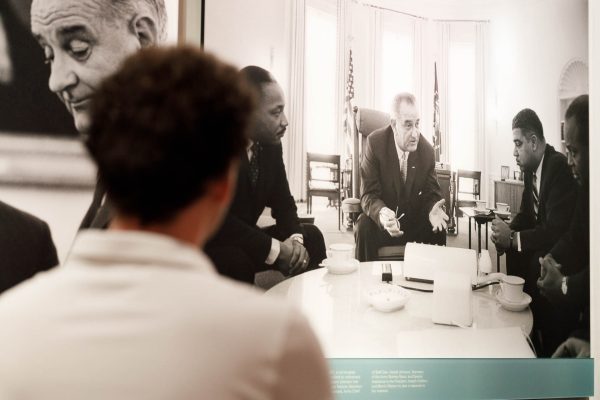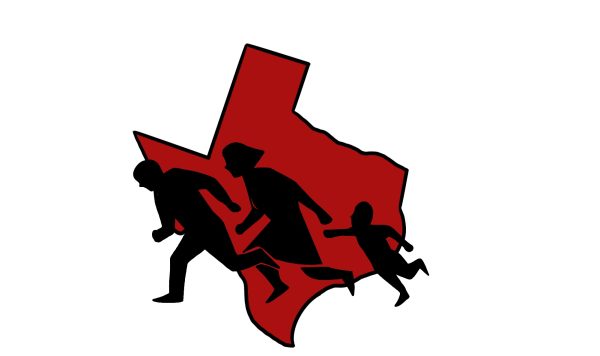FACEOFF: An in-depth look at donating to the university after graduation
Get what you give: Donating to St. Edward’s ensures enhanced college experience for future students, faculty, alumni
By Andy Dunklee
Since the year 1999, the Office of Advancement has raised 174.7 million dollars from donations to the university. This money has to come from somewhere and a staggering 80 percent of all donations come from SEU alumni.
But in a world fraught with unsecure job markets and high amounts of student debt, is it right of the university to ask former SEU students to provide more money to a university that has already asked so much of them? In a single word: Yes.
St. Edward’s has grown immensely over the past decade. The majority of SEU alumni, throughout our 132 year long history, have been graduates from the beginning of the millenium. Because of this, we have a large (and quickly growing) alumni population, but not a long tradition of engaging with them.
As a result, the Office of Advancement has created a series of programs to try and engage with SEU alumni, such as the “Love Blue, Give Gold” campaign, “Give Campus” and many mini campaigns such as “Hilltopper Harvey.” The purpose of these campaigns isn’t solely devoted to acquiring money from alumni, but rather to try and engage with alumni and rekindle a sense of camaraderie.
“We’re reinforcing and underscoring that value of caring for one another and giving back to a community that you care deeply for,” said Lisa Kirkpatrick, the Vice President of Student Affairs. “if we don’t create ways in which to engage the student body while they’re here then it won’t come naturally.”
This camaraderie can be manifested in ways that are not based on monetary donations, but in time and talent as well. SEU alumni Michael Cimino volunteers two hours of his time every Monday, Tuesday, Thursday and Saturday providing his service as a volunteer swim coach for the SEU swim club.
“The university helped define who you are and provide services after you graduate. It’s only fair to reciprocate,” Cimino said.
There are also ways that current students can volunteer their services to alumni as well. One such campaign that is run by SEU alum and Associate Director of Annual Living, Sara Hoover, is called “Thankful Thursday,” a campaign that asks SEU students to make thank you notes to alumni who donate money to scholarships.
“We’re not even asking students to make a financial gift,” said Hoover, “we’re just asking for their time and their words to say thank you.”
And as far as monetary donations go, Joe DeMedeiros, Vice President of University Advancement says, “Primarily the big campaign dollars are for scholarships…The reality is [general purpose donations] are earmarked for financial aid to underwrite the more than $75 million dollars the university gives out in financial aid.”
The benefits of giving time, treasure or talent to SEU is more than apparent. Without donations, in whatever form they may take, life and culture here at SEU just wouldn’t be the same. By giving back to our university, we make a commitment not only to try and improve our own experience here at SEU, but to improve the experience for the generation of students to come.
‘Til debt do us part: Students struggling with debt face the difficult decision of donating money to universities upon graduation
By Lauren Sanchez
Debt will haunt me after I graduate.
Tuition for the 2018-2019 school year is going to be $22,339 per semester, adding up to $44,678. That doesn’t factor in the cost of living on campus or however much you plan on paying for meal plan. So add everything up, you’ll be paying approximately $61,670 for the 2018-2019 school year.
If you’re a freshman and you plan to attend St. Edward’s for four years, live on campus and assume tuition doesn’t go up, you’ll pay St. Edward’s about $246,680.
Let that sink in. It’s a lot to process; it’s very stressful. Now consider what job you’ll get when you graduate. How long will it take to find that job? Will it be in a different city? A different state? How much will it cost to move? How much does that job pay per year? Would it be enough to pay off your debt within a reasonable amount of time?
Those are the questions that blast through my brain every time I think about graduation; not my academic accomplishments, what cake I’ll want for my graduation party, not what type of gift I’ll expect from my parents, not what I’ll do with my significant other to celebrate. I think only about how much this schooling will cost me, both now and until the day I die. Will I pass on this debt to my children? Will I have to rely on my husband to help me?
So, imagine my frustration when a professor of mine told me that I, as a student, am ethically obligated to donate to the university.
Don’t get me wrong, St. Edward’s has done so much for me and my education. I will be forever grateful for how the school’s professors and students have strengthened my love for journalism. I’ve made lifelong friends at this school, I met someone I love because I moved to Austin to study here. But all of that comes at a cost, one that I will be paying for many years to come. This will be a cost that will prevent me from making donations to this university.
I don’t have the privilege of donating money to St. Edward’s. Maybe back in the day and at less expensive institutions, it was easier to donate copious amounts of cash to alma maters like it was nothing. So easy that nowadays you can make your students feel guilty for not donating. But that’s not a position I find myself in; that’s not something I will be able to do.
During an interview with Joe DeMedeiros, the vice president of University Advancement and Lisa Kirkpatrick, the vice president of Student Affairs, they both explained the importance of donating to this school.
Both stated how it creates a community among alumni and the university, but they also stressed the fact that students aren’t forced to donate, and expressed empathy for the situations of students in debt.
“The concern about student debt and the burden that you leave with — the things you worry about. Can I find a job? What am I gonna do after I graduate? How do I start paying back on the loans?,” Kirkpatrick said. “And recognizing that some families don’t have parents that can step right into that… that can be a stressful and concerning time… I think the challenge is being in the moment and understanding what has to be done while also thinking long term. How do we make sure students like you have support when they come here?”
In fact, DeMedeiros and Kirkpatrick say that donating time is just as important as donating funds. For a soon-to-be graduate who’s going to be low on funds, that’s a big deal for me. Many people don’t realize that there are other ways to give back to your school other than money.
Some statistics given to us by DeMedeiros revealed that alumni and donors have volunteered over 20,000 hours to the school, and there’s no shortage of events volunteers could work.
While I personally may not be able to donate to this school, there is no reason I should be judged by that. I have given this school my talent as a writer and editor for this paper, and I will be able to donate my time as a volunteer in the future.
No student should be judged or expected to donate to their university if they are unable to. Be aware that there are other ways to help our school prosper and grow.











